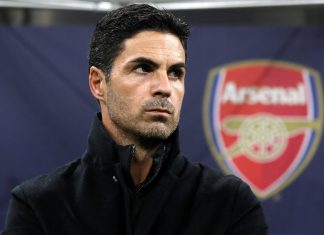No sooner was this decision announced that the Scots, Irish and Welsh rounded on the British Olympic Association to express their dismay at the news. None are happy and all are reluctant to release their players. But Gareth Bale’s desire to play for Wales, and the hint that their FA could be sued if they refused to allow their players to compete, forces their hand.
It is a curious quirk of nationalism that identity is so loose as to enable players who would usually give anything to beat “the enemy” (England) are desperate to play alongside them as part of a British squad. But for players like Bale, this is a dream come true.
David Beckham is likely to be one of those English players participating in the tournament, though whether he is able to perform at the level required will be in doubt. He hasn’t played at the top level for years.
And he will be one of just three players over the age of 23 allowed to participate for Britain, raising the importance of the likes of Bale and Arsenal’s Aaron Ramsey. Who the other over 23s will be is anyone’s guess. An attempt to call up a player from one of England’s top sides will be met with opposition by their clubs, and as Barcelona showed at the last Olympic Games, they can stop national sides picking particular players.
In Barcelona’s case, Ronaldinho was not released, and it was only when he moved to AC Milan that he was allowed to play for the national team in China.
But with football the least popular sport at next year’s Olympics, with many tickets still available, organisers are desperate for Team GB to help sell seats and ensure that fans turn up to watch some of the world’s most exciting young talents. But the Olympic tournament does not have the lustre that other competitions do. There is little prestige in the same way that FIFA competitions or the Champions League can garner, so why turn up and play?
Criticism comes from within England too, as many ask where the pedigree and history comes for a side who have never competed together before. And given that they are being taken from around the British isles, they won’t have played together before, unlike teams from Argentina and Brazil. With Beckham in the side to sell tickets, essentially, this is not a serious entry for the tournament. It is more about selling seats than the taking part. And that is the main problem with the British Olympic team. It is an affront to sport itself. Competition has been devalued in the way of corporate needs.






